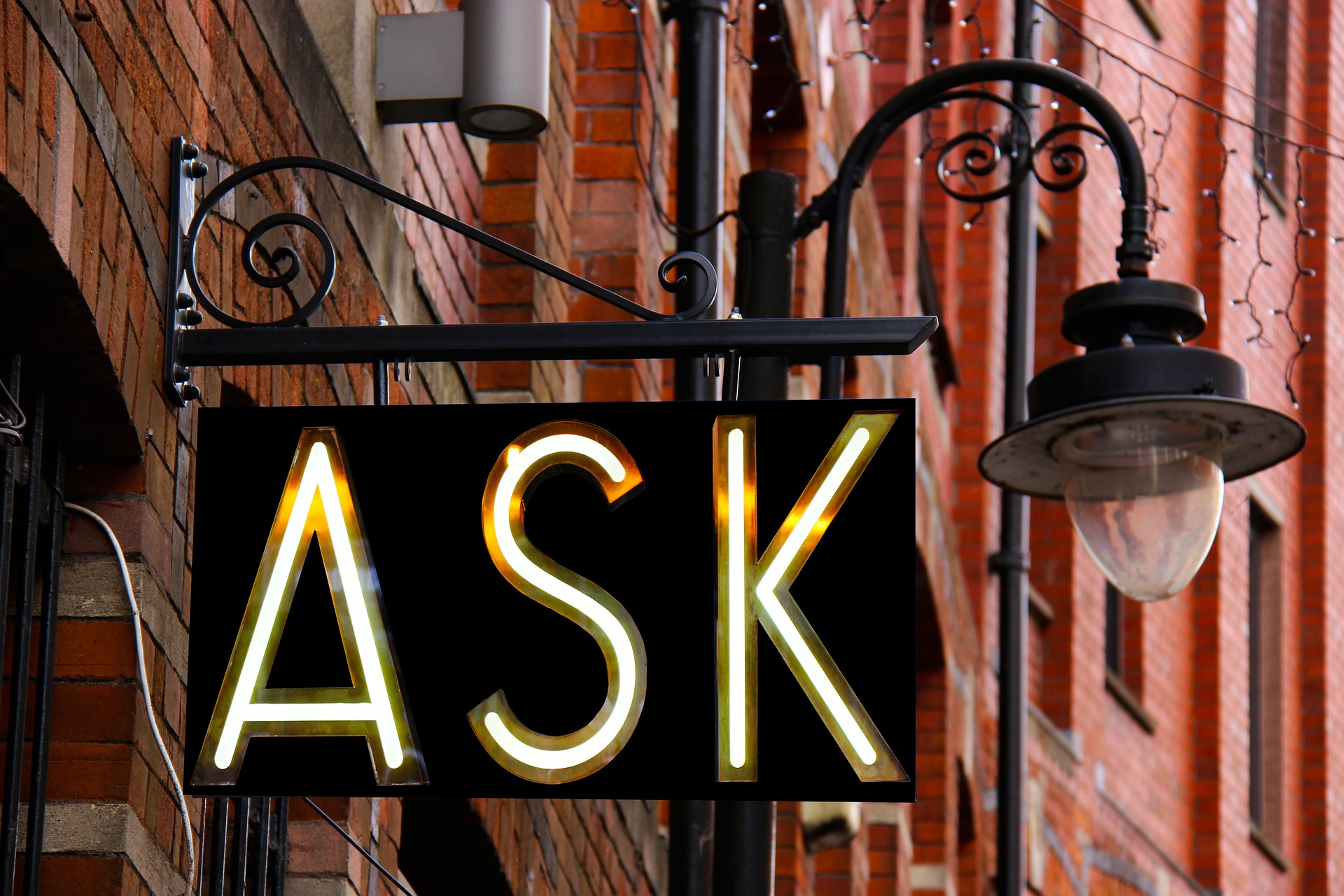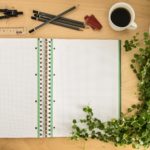So. Asking for help is hard. Asking for anything is hard. I’m not particularly good at it, and you know what?
I’m not alone.
This fear of asking overflows into our work as writers. The writing process involves creating stories and asking people to read them, to review them, to love them.
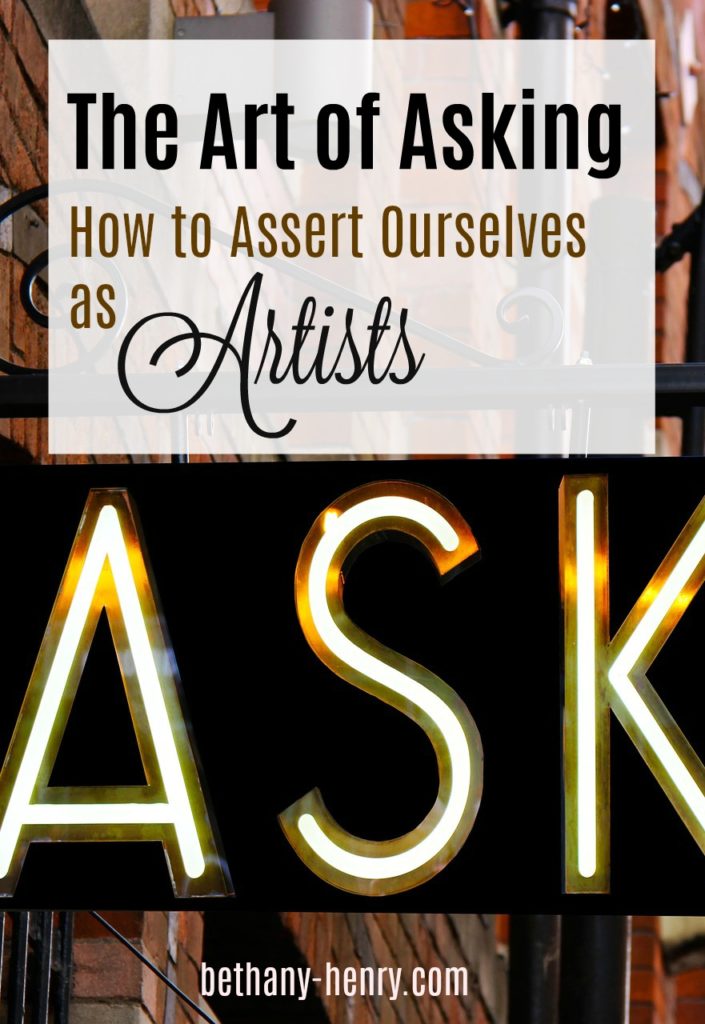
When we are afraid to put ourselves out there and ask people for what we need and want, it can seriously hinder our work.
For myself, I think asking for help is hard because I’m afraid people will think I don’t “have it all together” (whatever that means). I’m afraid people will be inconvenienced and unhappy with me. My fear of failure shows up and tells me no one wants to read my work anyway.
Enter The Art of Asking by Amanda Palmer.
Note: Links for this book are affiliate links which means I may get a small commission if you purchase something. Check out my site policy for more info.
The Art of Asking is part memoir and part advice-giving, along with plenty of song lyrics. (For anyone thinking of giving it to your children, you may want to take a read yourself first. It does include swears and some sensitive subjects.)
I stumbled across this book when it was was recommended by The Plains Literary Agency, and I am thankful they shared it! While much of the book is personal to Amanda’s own experience (she is her own extremely unique individual), it raised interesting thoughts about the importance of being willing to ask for what we need as well as how that fits in with our identity as artists.
Amanda professes we should be vulnerable with one another and trust that those around us have good in them. That people are happy to help. She talks about how asking and receiving can be a gift to everyone involved in the process.
I appreciated that Amanda mentioned we don’t need to apologize for asking for things, nor do we need to feel guilt as artists for getting paid for our work.
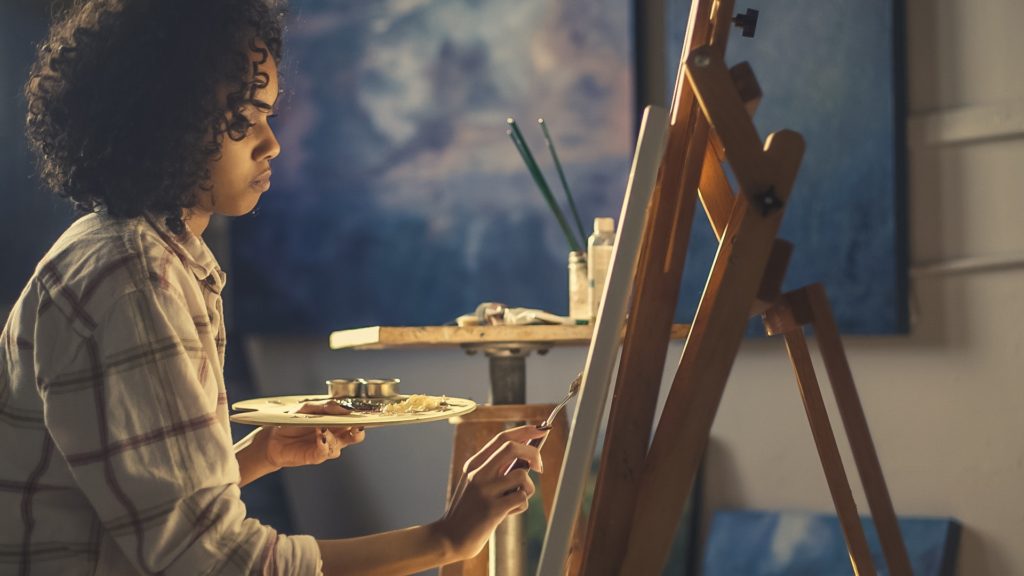
Essentially, asking for things is hard, but the more we practice it the better we’ll get. Every time someone says “yes,” it makes it easier to ask again the next time.
We can trust the process, trust that our work will benefit from reaching out to others, and trust that asking for help can ultimately enrich our lives.
Favorite Quotes To Think About
On the fear of asking:
“From what I’ve seen, it isn’t so much the act of asking that paralyzes us–it’s what lies beneath: the fear of being vulnerable, the fear of rejection, the fear of looking needy or weak. The fear of being seen as a burdensome member of the community instead of a productive one.”
On being a real artist:
“When you’re an artist, nobody ever tells you or hits you with the magic wand of legitimacy. You have to hit your own head with your own handmade wand. And you feel stupid doing it.”
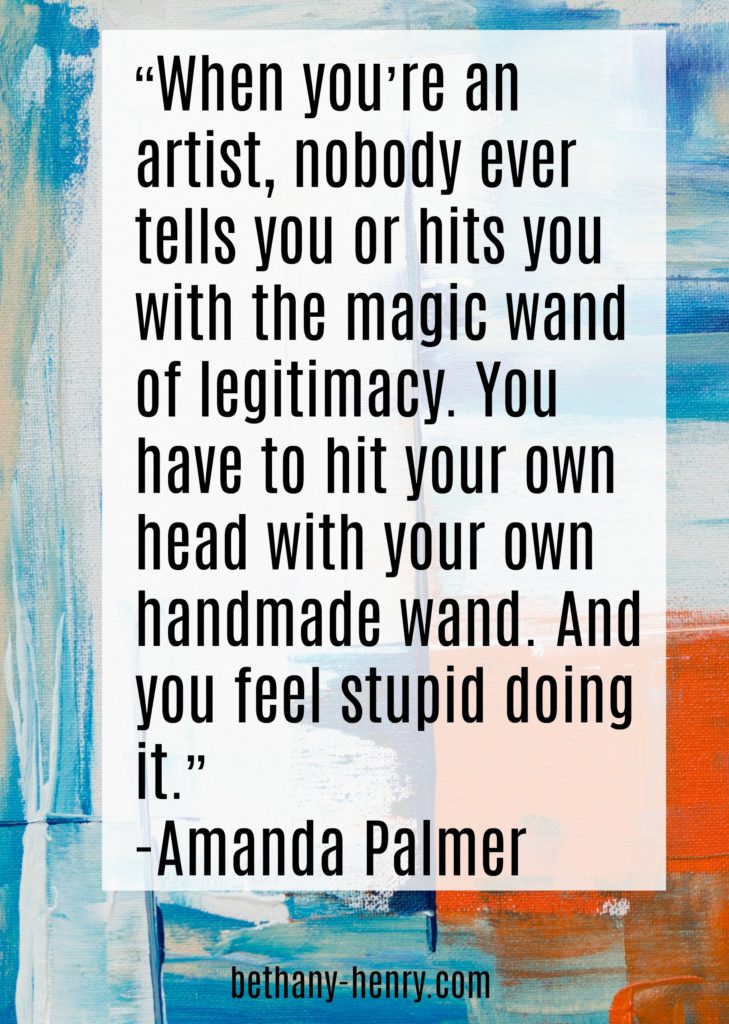
On realizing we don’t have to do it alone:
“There’s really no honor in proving that you can carry the entire load on your own shoulders. And…it’s lonely”
On the mindset of asking:
“Asking for help with shame says:
You have the power over me.
Asking with condescension says:
I have the power over you.
But asking for help with gratitude says:
We have the power to help each other.”
On vulnerability:
“The perception that vulnerability is weakness is the most widely accepted myth about vulnerability and the most dangerous. When we spend our lives pushing away and protecting ourselves from feeling vulnerable or from being perceived as too emotional, we feel contempt when others are less capable or willing to mask feelings, suck it up, and soldier on. We’ve come to the point where, rather than respecting and appreciating the courage and daring behind vulnerability, we let our fear and discomfort become judgment and criticism.”
On success:
“American culture in particular has instilled in us the bizarre notion that to ask for help amounts to an admission of failure. But some of the most powerful, successful, admired people in the world seem, to me, to have something in common: they ask constantly, creatively, compassionately, and gracefully. And to be sure: when you ask, there’s always the possibility of a no on the other side of the request. If we don’t allow for that no, we’re not actually asking, we’re either begging or demanding. But it is the fear of the no that keeps so many of our mouths sewn tightly shut.”
On relationships:
“Asking is, in itself, the fundamental building block of any relationship.”
On collaboration rather than competition:
“Those who can ask without shame are viewing themselves in collaboration with—rather than in competition with—the world.”
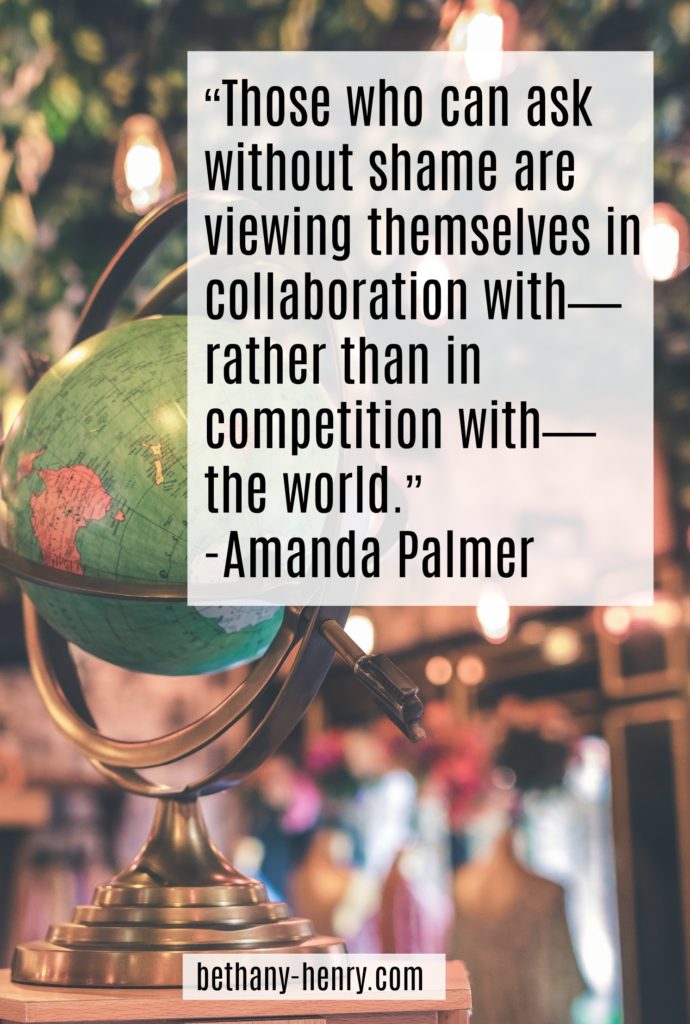
For more on The Art of Asking, check out Amanda’s TED talk.
How about you? Are there areas you need to be asking for help, support, or advice? What is holding you back?

